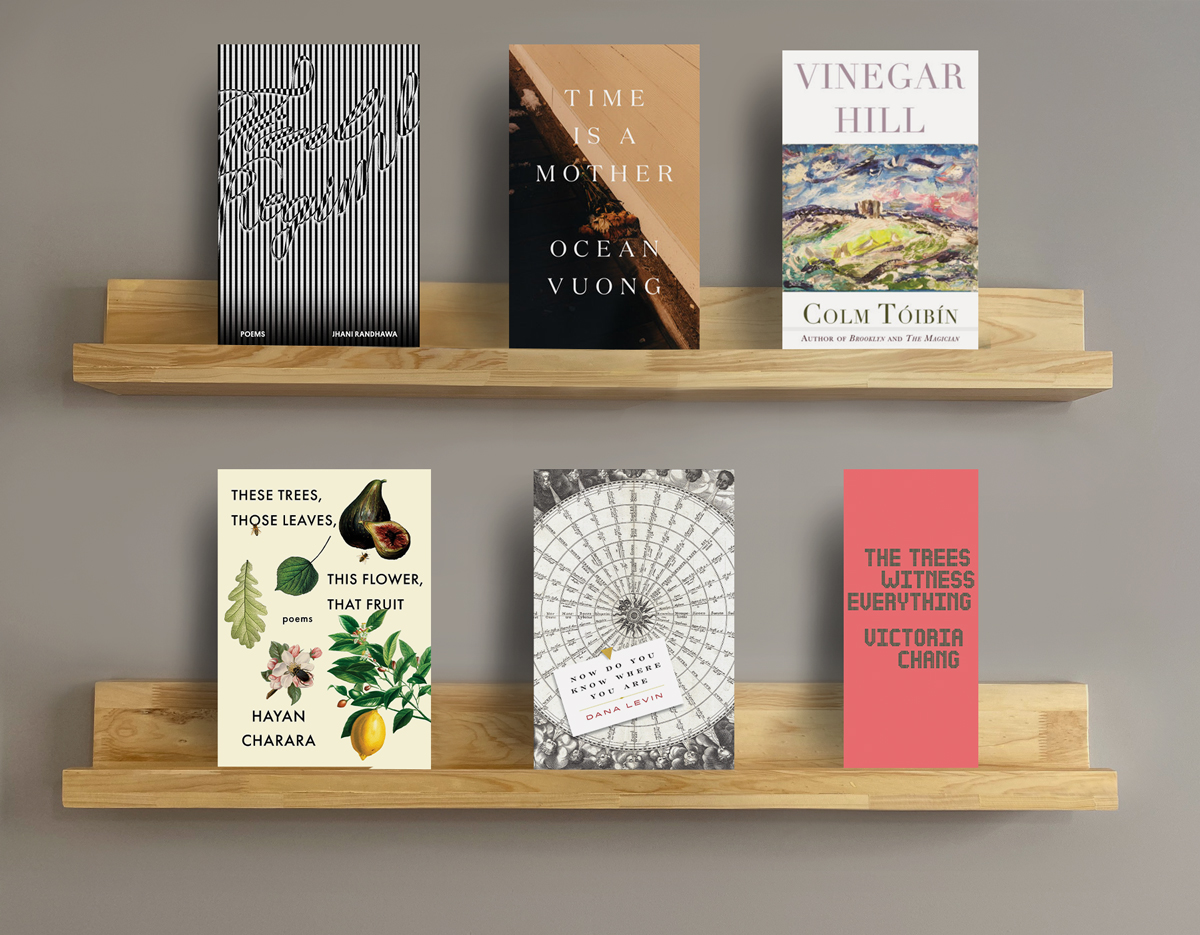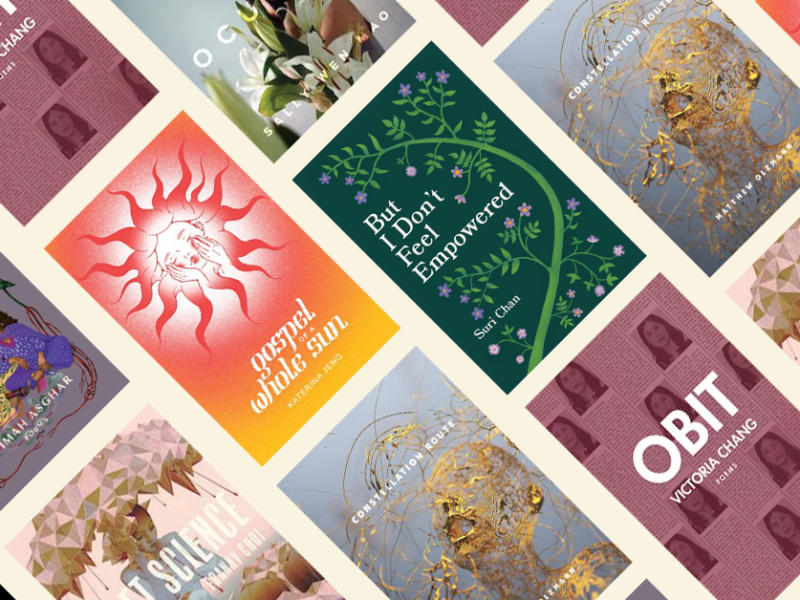April 2022 Poetry Releases: 6 Sensational Picks
April 2022 marks a big month for poetry, with some of the genre’s biggest contemporary names releasing new, much-anticipated collections. From Ocean Vuong and Dana Levin to Victoria Chang, this month’s spotlighted poets have won Guggenheim fellowships, Pushcart Prizes, and been named MacArthur Fellows. If you’re a fan of poetry, it’s likely you’ve been eagerly awaiting these titles—and you don’t want to miss them.
Time Regime by Jhani Randhawa
Release date: April 1
Time Regime is the debut collection from Jhani Randhawa, a nonbinary South Asian poet and founder of the experimental journal rivulet. The book won the 2021 Gaudy Boy Poetry Prize and was praised as “spectrally luminous” by judge Dorothy Wang. The collection is a defiant and bold resistance of many systems of power, unabashedly pushing back against wealth inequality, patriarchy, and imperialism. Randhawa writes from an ecofeminist perspective, offering a vision for how to transcend climate catastrophe and societal violence.
Time Is a Mother by Ocean Vuong
Release date: April 5
In Ocean Vuong’s fifth book, Time Is a Mother, the award-winning poet and novelist returns to many of the searching and deeply intimate themes that have made readers fall in love with his work. The collection could be considered a companion to On Earth We’re Briefly Gorgeous, Vuong’s debut novel and a 2020 PEN/Faulkner finalist. Vuong once again reflects on loss from a specific and unflinching point of view, coping with the death of his mother as he also interrogates ideas about family, immigration, and war.
Vinegar Hill by Colm Tóibín
Release date: April 12
Irish writer Colm Tóibín has previously published novels, essays, and plays, but Vinegar Hill marks his foray into poetry. A previous winner of the Lambda Literary Award, the Stonewall Book Award, and the Irish PEN award, Tóibín represents a sense of place, nationality, and queer identity in many of his works. Vinegar Hill is a physical and emotional journey, with the collection taking readers through Dublin, Venice, and even the White House. As Tóibín traverses these cities and landmarks, he also moves through themes of politics, queer love, mortality, and the COVID-19 pandemic, depicting these experiences as both universal and intensely private and personal.
These Trees, Those Leaves, This Flower, That Fruit by Hayan Charara
Release date: April 12
Categorized as “among the very best books of poems I’ve read in years,” by poet and Copper Nickel editor Wayne Miller, These Trees, Those Leaves, This Flower, That Fruit stands out due to its sense of both timelessness and urgency. Charara consults religion, philosophy, and academic texts in his search for answers to some of the human condition’s biggest questions, like morality, how to persevere in the face of loss, and how to reckon with a history of violence. The collection has been praised for its humor, playfulness, and distinct sense of voice, with Charara standing out as an example of how to find joy amidst confusion and sorrow.
Now Do You Know Where You Are by Dana Levin
Release date: April 19
“So many bodies a soul has to press through: personal, familial, regional, national, global, planetary, and cosmic,” Levin writes in her fifth collection. “Now do you know where you are?” Levin uses all of these different lenses and identity markers to consider the 2016 U.S. presidential collection, as well as her resulting disorientation, grief, and hope for societal transformation. With this reflection, Levin at times becomes a diaristic, confessional voice, ruminating on what this major event means for her and those in her life, but she also becomes a historian, record-keeper, and window to a wider world, considering what major events mean more broadly and how they shape all of us.
The Trees Witness Everything by Victoria Chang
Release date: April 26
Like Victoria Chang’s beloved 2020 collection Obit, The Trees Witness Everything also showcases how form can powerfully influence poetry. The collection is made up of wakas, a type of Japanese syllabic form. While this formal choice makes the poems in The Trees Witness Everything sparse, it illuminates Chang’s deft, carefully chosen word choice, how she uses white space to inform her poetry, and the sudden emotional effect she can create in just a few lines. The Trees Witness Everything describes the highly relatable experiences of isolation and yearning, emphasizing the enduring nature of these themes by evoking the work of classic poets throughout its pages.
Happy reading!




